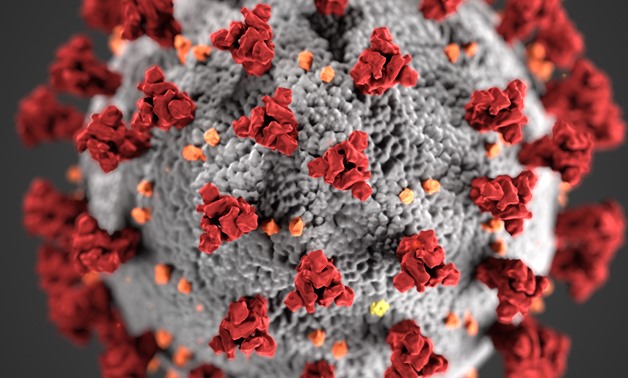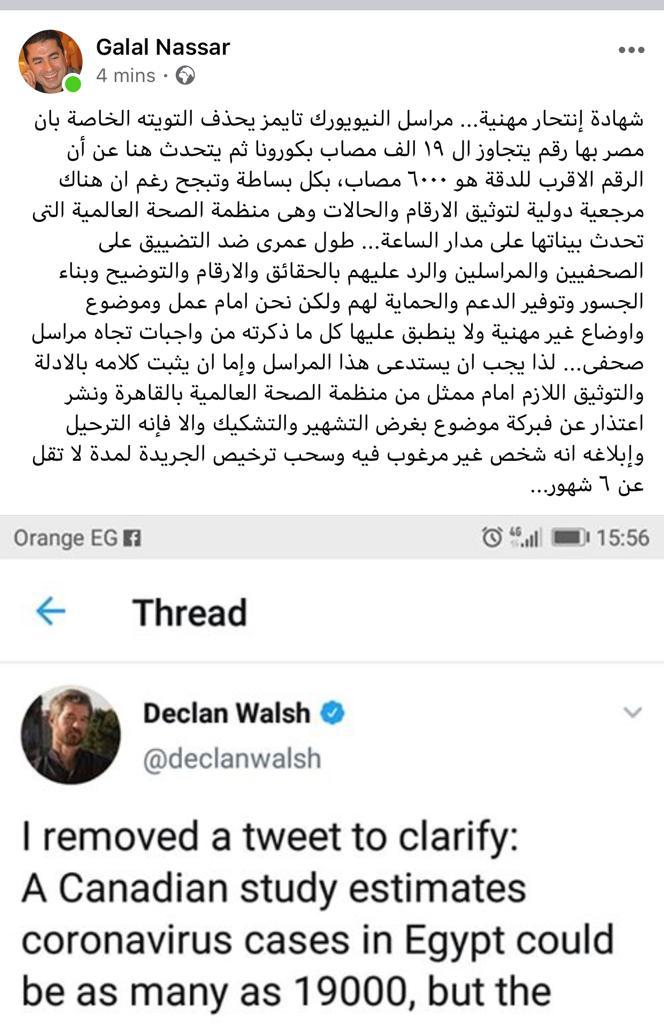
Coronavirus (Covid-19) - Wikimedia Commons
CAIRO - 16 March 2020: The New York Times Chief in Egypt caused controversy by referring to an unverified study about the number of Coronavirus cases in the country.
The study conducted by a researcher at a Canadian university was not published at any scientific publication. Although, he mentioned in a Tweet the variables considered, no clear methodology, equation or formula were indicated.
After consulting with the Ministry of Health and Population, the Egyptian cabinet denied on Monday news circulating about the infection of 19,000 citizens with Coronavirus as it was referred by the study.
The ministry asserted that the number of infections until March 15 was 126. Of those, 26 healed and left the quarantine hospital. However, the ministry stated that the figure rose to 150 on Monday while the death toll became three up from two.
The ministry pointed out to an interview WHO Representative in Egypt John Jabbour did with CNN on Sunday whereas he praised Egypt’s handling of the pandemic and its ability to control its spread rate given its possession of one the strongest detection systems in the region.
Cairo Bureau Chief of the New York Times Declan Walsh had tweeted about a Canadian study that estimated the number of infections in Egypt as 19,000 but later deleted it.
Former Editor-in-chief of Al Ahram Weekly Galal Nassar commented on his Facebook account on Monday saying, “This is a professional suicide certificate...The New York Times reporter deletes the tweet claiming that Coronavirus cases in Egypt surpass 19,000 and then says very simply and in an insolent tone that the most accurate number is 6,000. That is despite the fact that there is an international reference that documents the figures and cases 24/7… I have always been against restraints upon foreign journalists and reporters as I support replying to them using facts and figures, and providing them with explanations, support, and protection. Yet, we are facing an unprofessional situation where such duties towards a reporter do not apply...That’s why we have to summon that reporter. Either he proves his statement by evidence to a WHO representative or publishes an apology. If he fails to do either, deportation and licence revocation of the publication for at least six months must take place.”


Comments
Leave a Comment